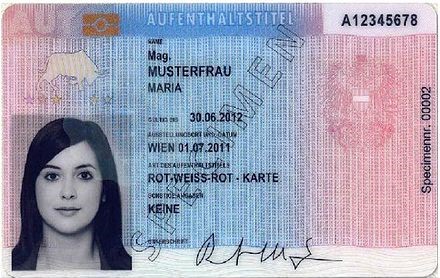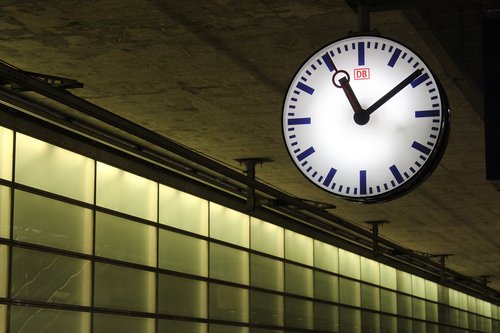Red-White-Red Card, Access to the Austrian Labor Market for Third-Country Nationals: Recent Amendments facilitate the award procedure for Employees and Employers
The Red-White-Red Card: residence title and employment permit
The Red-White-Red Card is an attractive residence title for qualified workers who can present a binding job offer from an Austrian company. The settlement authority and the labor market service check the qualifications on the basis of a catalog of criteria. For example, an applicant receives points for completed vocational training, a university degree, relevant work experience, and knowledge of German and English. The job offer and the future employer must also meet certain criteria (minimum salary, qualified and training-adequate position in the company, etc.).
Requirement: professional qualifications of the employee
The qualifications of the employee are evaluated according to a point scheme. If a worker achieves a sufficient number of points according to this points scheme, he or she can obtain a red-white card (residence title and employment permit). The prerequisite is a corresponding job offer from an Austrian employer.
The applicable points scheme for the award of a Red-White-Red Card is explained in detail at www.migration.gv.at. Although the criteria for the award of points are clearly and comprehensively regulated in the Foreign Employment Act (AuslBG), questions of interpretation repeatedly arise in administrative practice. For example, it is not always clear which professional education or training is qualified as “relevant to the field of employment” by the Austrian Labour Market Service (AMS). Good preparation makes it easier for the immigration offices and the Austrian Labour Market Service (AMS) to reach a decision quickly in favor of the applicant (skilled worker or company/future employer).
In the recent past, the Austrian legislator has repeatedly made adjustments to make the Red-White-Red Card more attractive for both employees and employers. For example, with the amendment to the Austrian Foreign Employment Act, Federal Gazette I 106/2022, the Austrian legislator created new, simplified framework conditions for the Red-White-Red Card, in particular a more favorable points system for skilled workers in shortage occupations.
Already two amendments of the rules concerning the Red-White-Red Card in 2023
The amendment to the Austrian Foreign Labour Act (AuslBG), Federal Law Gazette I 43/2022, which has been in force since 21 April 2023, regulates access to the labor market for Ukrainian refugees who have a temporary right of residence in Austria on the basis of the Decree on displaced persons (Federal Law Gazette II 92/2022). It also provides for easier access to the Red-White-Red Card. Above all, more points are awarded in individual selection criteria (e.g. language, professional experience) than before. With the amendment, the legislator wants to counteract the shortage of skilled workers. The legislator has relaxed the criteria for issuing the Red-White-Red Card in order to facilitate access to the Austrian labor market for skilled workers from abroad. The parliamentary materials provide information on the legislator’s objectives and motives. The motive report is available online on the website of the Austrian Parliament (Link) and can be used as an argumentation aid, for example, in questions of interpretation.
Easier requirements since April 2023: new points scheme, consideration of English, French, Spanish, Bosnian/Croatian/Serbian skills
Since the last amendment, points are awarded not only for German and English language skills, but also for language skills in the French, Spanish and Bosnian/Croatian/Serbian languages. This facilitates labor market access for persons who have acquired language certificates or completed training in these languages.
Procedural simplifications since July 2023
Until the last amendment to the Act on the Employment of Foreign Nationals (AuslBG), BGBl I 84/2023, a positive decision by the Regional Office of the Foreign Labour Market Service (AMS) was required for admission as a key worker and thus posed a procedural prerequisite for the “Red-White-Red Card”.
The Constitutional Court overturned this regulation as questionable under the rule of law (VfGH 14.12.2021, G 232/2021-14). The legislator therefore had to amend the regulation within the period granted by the Constitutional Court.
Since this amendment, which entered into force on July 20, 2023, a key worker permit can also be issued if
- the employment of the foreigner is necessary for particularly important reasons, in particular to preserve jobs of domestic employees or as a demonstrably qualified worker in a shortage occupation, or
- public or supra-company macroeconomic interests require the employment of the foreigner.
This gives both the immigration offices and the administrative courts the option of admitting an employee as a key worker in the event of a negative decision by the Regional Office of the Austrian Labour Market Service.
The aim of these measures is to make it easier for qualified applicants to achieve the required points and to comply with procedural law, thus facilitating access to the Austrian labor market.
The changes are welcome for qualified professionals wishing to settle in Austria, for third-country nationals wishing to work in Austria and for Austrian companies.
We have already successfully assisted numerous clients in obtaining a Red-White-Red Card under the new legal situation.
If you need support, advice and representation in a procedure to obtain a Red-White-Red Card, we look forward to hearing from you!


